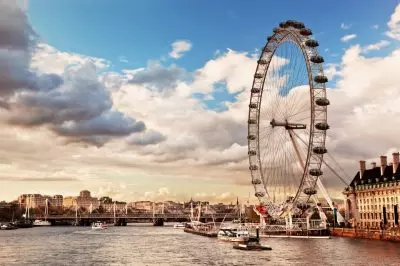 Last week, the UK Government published a report featuring the results from its gambling triennial review, which was primarily focused on fixed-odds betting terminals. Apart from the fact that serious crackdown could be faced by the gambling operators in the country, the report published by the Department for Culture, Media and Sports also highlighted some issues of excessive gambling local high-street betting shops.
Last week, the UK Government published a report featuring the results from its gambling triennial review, which was primarily focused on fixed-odds betting terminals. Apart from the fact that serious crackdown could be faced by the gambling operators in the country, the report published by the Department for Culture, Media and Sports also highlighted some issues of excessive gambling local high-street betting shops.
After a few years of consideration, the Government has finally taken action and carried out the review, confirming that the maximum stakes of the fixed-odds betting machines in the country are to be reduced. Although that the industry is already pretty sure about the crackdown decision, the actual change of the stake is yet to be decided.
At the end of October, the Department for Culture, Media and Sports’ review is being followed by a 12-week consultation period over which several important issues are to be taken into consideration, with the maximum stake allowed at the terminals being one of them.
The fixed-odds betting terminals first appeared in the UK in 2001, when the country saw a change in its tax laws. Later, in 2005, the gambling legislation of the UK was altered once again, which ended up with a great boost in the number of high-street bookmakers and FOBTs. Currently, there are approximately 34,000 fixed-odds betting machines on the territory of the UK, with a large clusters of them situated in poorer areas and neighbourhoods with high unemployment. Reportedly, about 1.5 million people have bet on FOBTs.
Labour Party Deputy Leader’s Reaction
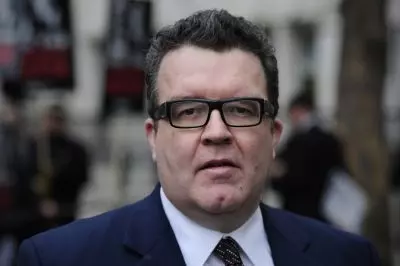 The deputy leader of the Labour Party, Tom Watson, commented on the Government’s review of the gambling industry and the fixed-odds betting machines, calling it “deeply disappointing”.
The deputy leader of the Labour Party, Tom Watson, commented on the Government’s review of the gambling industry and the fixed-odds betting machines, calling it “deeply disappointing”.
His discontent was additionally fuelled by the fact that some of the largest British bookmakers, including William Hill and Ladbrokes, saw their shares’ value rise after the review, with the investors obviously taking the review’s results as not so unfavourable.
According to Mr. Watson, local bookmakers won from the report presented by the DCMS. The Labour Party’s deputy leader shared that ministers have wasted an opportunity to put some limits on highly-addictive fixed-odds betting machines, which could be harmful to players, their families and local communities. He criticised the authorities for their decision to initiate another consultation after delaying the review’s results for months.
According to the Labour Party, the “hidden epidemic” related to gambling addictions and problem gambling behaviour could be dealt by reducing the maximum FOBTs stakes to £2. Mr. Watson further shared that the industry should see a ban on gambling operators advertising on football team’s shirts.
Other MP Reactions
On the other hand, some Members of Parliament have sought assurances over the FOBTs issues. After the UK Department for Digital, Culture, Media and Sport finally released its long-awaited review on the machines, different opinions were heard across the community.
Peter Bone MP
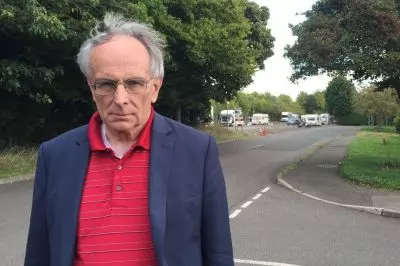 Peter Bone, a Conservative Member of Parliament for Wellinborough shared that the decision of the Government to have a 12-week consultation period was a really sensible one.
Peter Bone, a Conservative Member of Parliament for Wellinborough shared that the decision of the Government to have a 12-week consultation period was a really sensible one.
He also shared his fears that in case a wrong decision is made by the Government, this could the situation worse. MP Bone shared that crackdown imposed on the local gambling industry would see problem gamblers driven away from high-street betting shops, which however are controlled and monitored by authorities. However, such players could end up being involved with online gambling, which is much harder to be controlled.
Carolyn Harris MP
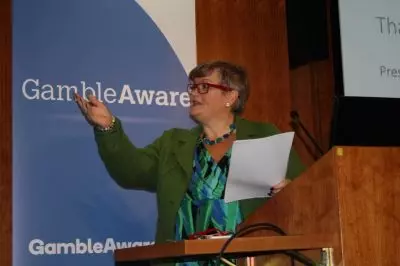 Carolyn Harris, the Member of Parliament for Swansea East who is also chair of the All Party Parliamentary Group on FOBTs, has been known as one of the most fierce supporters of FOBTs crackdown. According to her, the maximum stake for fixed-odds betting machines should be reduced to £2. Ms. Harris explained that a change was absolutely necessary for the sector, especially considering the devastating impact that gambling addictions had on local communities.
Carolyn Harris, the Member of Parliament for Swansea East who is also chair of the All Party Parliamentary Group on FOBTs, has been known as one of the most fierce supporters of FOBTs crackdown. According to her, the maximum stake for fixed-odds betting machines should be reduced to £2. Ms. Harris explained that a change was absolutely necessary for the sector, especially considering the devastating impact that gambling addictions had on local communities.
Ms. Harris further shared that the British Government and the country’s gambling industry had to ensure the best regulation possible to the highly-addictive fixed-odds betting terminals. She said that it was the Government’s duty to be sensible and reduce the maximum stake to £2. The Swansea MP also called everyone to take part in the consultation before the deadline set on January 23rd 2018 and back the reduction of the FOBTs’ maximum stake as the “only reasonable option”.
Bookmakers Reactions
 UK bookmakers, on the other hand, also shared their opinions of the possible reduction to the maximum stake of fixed-odds betting terminals. Gambling companies that run high-street shops and FOBTs, respectively, shared their disappointment with the decision of the Government’s Department for Culture, Media and Sports to impose crackdown on the industry, and more specifically, on FOBTs’ maximum stakes.
UK bookmakers, on the other hand, also shared their opinions of the possible reduction to the maximum stake of fixed-odds betting terminals. Gambling companies that run high-street shops and FOBTs, respectively, shared their disappointment with the decision of the Government’s Department for Culture, Media and Sports to impose crackdown on the industry, and more specifically, on FOBTs’ maximum stakes.
Local bookmakers are worried that such a serious reduction of the maximum stake allowed on the machines would hurt the operators’ profits. In fact, gambling operators’ revenues are not the only ones that would be seriously affected by such an action. In addition, the money flow generated by licensing fees and taxes imposed on FOBTs is also to be reduced.
Local bookmakers have claimed that a reduction to the FOBTs’ maximum stake to £2 would cost the industry approximately 20,000 jobs, leading to massive lay-odds across the industry.
Players Reactions
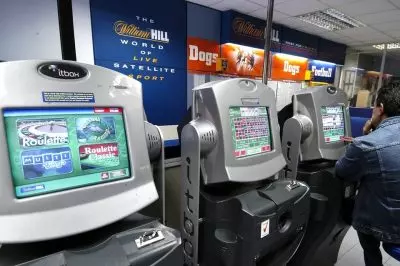 Reportedly, some players who have shared their opinions after the Government’s review was released confessed there was a need for open discussion in terms of gambling and gambling-related harm for individuals and their families. Some of them suggested various measures for the Government to take, including stricter regulation in order to protect more vulnerable individuals from unwanted gambling addiction.
Reportedly, some players who have shared their opinions after the Government’s review was released confessed there was a need for open discussion in terms of gambling and gambling-related harm for individuals and their families. Some of them suggested various measures for the Government to take, including stricter regulation in order to protect more vulnerable individuals from unwanted gambling addiction.
According to customers, more serious support is needed for prevention against harmful effects of gambling addiction. Players commented that the industry urgently needs a unified, transparent approach in order to deal with negative effects of gambling across the country. According to them, uncovering the extent of possible social harms as a result of gambling would help people get a better perspective of the situation.